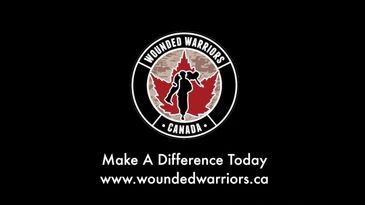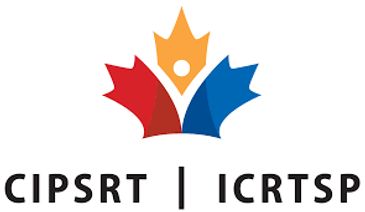
IAFF Online Recovery Meetings
IAFF Online Recovery Meetings
IAFF Online Recovery Meetings
IAFF Online Recovery Meetings are an essential form of recovery support for hundreds of IAFF members and fire service personnel living in addiction or recovery. These peer-led meetings embrace multiple pathways to recovery, including Alcoholics Anonymous (AA) or Narcotics Anonymous (NA), SMART recovery, harm reduction and medication assisted treatment.

Wounded Warriors Canada
IAFF Online Recovery Meetings
IAFF Online Recovery Meetings
Through this partnership, Ottawa firefighters, front-line members, and their families will gain access to Wounded Warriors Canada’s wide range of culturally specific mental health counseling programs, such as the Trauma Resiliency Program, Couples Overcoming PTSD Everyday (COPE) program, the Spousal Resiliency Program, and Warrior Kids Ca
Through this partnership, Ottawa firefighters, front-line members, and their families will gain access to Wounded Warriors Canada’s wide range of culturally specific mental health counseling programs, such as the Trauma Resiliency Program, Couples Overcoming PTSD Everyday (COPE) program, the Spousal Resiliency Program, and Warrior Kids Camp and Virtual program. By fostering a culture of openness and support, OFS and OPFFA aim to create an environment where members feel empowered to prioritize their mental well-being without stigma or hesitation.

SELF-ASSESSMENT TOOLS
IAFF Online Recovery Meetings
PSP MENTAL HEALTH RESOURCES
Using the anonymous screening tools lets you compare your responses to previously published responses from the general population or other public safety personnel. Your results can help inform whether you should consider speaking with a health care professional to get additional assistance.

PSP MENTAL HEALTH RESOURCES
Ottawa First Responders Foundation
PSP MENTAL HEALTH RESOURCES
PSP Mental Health provides free access to a list of mental health support available to Canadian public safety personnel (PSP) and their families.

Ottawa First Responders Foundation
Ottawa First Responders Foundation
Ottawa First Responders Foundation
The Ottawa First Responders Foundation aims to augment the services and support provided to the Ottawa First Responders Family by collaborating to provide: Peer support, informed clinical support, and education. The Ottawa First Responders is the benchmark by which other organizations measure the support and strategies they provide to f
The Ottawa First Responders Foundation aims to augment the services and support provided to the Ottawa First Responders Family by collaborating to provide: Peer support, informed clinical support, and education. The Ottawa First Responders is the benchmark by which other organizations measure the support and strategies they provide to foster resilience, decrease suicide, and increase the quality of life in the first responder family. By sourcing stable funding, creating a standardized and unified group, and providing education within the first responder community, retirees and veterans of the community, and externally to stakeholders, mental health in first responders will thrive.

Ottawa Distress Centre
Ottawa First Responders Foundation
Ottawa First Responders Foundation
Distress Centre of Ottawa and Region - 613-238-3311
"The Distress Line / Help Line is a vital community service that is available 24 hours a day, 7 days a week.

Employee and Family Assistance Program (EFAP)
Ottawa Public Health Mental Health and Substance Use Resource List
Ottawa Public Health Mental Health and Substance Use Resource List
1-844-880-9142
Access your Employee and Family Assistance Program (EFAP) 24/7.
Services available to Employees of the Fire Services (City of Ottawa) and their dependents (spouse & children (up until 25 years of age if still in school)
No Cost, Voluntary & Confidential.
Ottawa Public Health Mental Health and Substance Use Resource List
Ottawa Public Health Mental Health and Substance Use Resource List
Ottawa Public Health Mental Health and Substance Use Resource List
OPH offers a listing of local Mental Health and Substance Use Resources available in Ottawa (PDF below). Listings are organized in categories such as Community Agencies, Community Agencies that Offer Walk-In Counselling, Community Health and Resource Centres, Substance Use Services, Crisis Lines, Hospitals and Online Support.
List of Local Clinicians
Ottawa Public Health Mental Health and Substance Use Resource List
Long-term management of PTSD through volunteerism.
Click below for a comprehensive list of local clinicians.
Read the guide to "Finding the right clinician" below in the IAFF Resources below, prior to using this list.

Long-term management of PTSD through volunteerism.
Webinar: Firefighter therapy – busting myths and stopping stigma
Long-term management of PTSD through volunteerism.
Camp Aftermath is a one-year, three-phase program which includes a screening process in Phase 1, a 6-8 day volunteering and therapeutical activities itinerary in Phase 2, and a one-year follow-up in Phase 3. With mental health experts oversight, this program will aim provide participants with long-term management of OSI/PTSD through volunteerism and the development of positive habits.

Webinar: Firefighter therapy – busting myths and stopping stigma
Webinar: Firefighter therapy – busting myths and stopping stigma
Webinar: Firefighter therapy – busting myths and stopping stigma
Go inside a first responder psychologist’s office where we’ll tackle a variety of common misconceptions about therapy, including what it is and isn’t, and detail the many benefits of speaking with a therapist.
Plus, we’ll cover all this:
- When to see a therapist
- How to find the right person to help you – general vs. trauma specialist
- What to
Go inside a first responder psychologist’s office where we’ll tackle a variety of common misconceptions about therapy, including what it is and isn’t, and detail the many benefits of speaking with a therapist.
Plus, we’ll cover all this:
- When to see a therapist
- How to find the right person to help you – general vs. trauma specialist
- What to expect in therapy
- Virtual vs. in-person sessions
- Benefits of therapy
- EAP vs. insurance vs. out-of-pocket
- And much more
Dr. Zemlok and Zam will also discuss their one-on-one “sessions” to spotlight what it’s really like inside a therapist’s office. If you’ve ever wondered what it’s like, now is the time to take a look behind the curtain.
IAFF Resources
DEALING WITH A HARD CALL
How do you feel?
An event just occurred. It is unexpected, senseless and sometimes violent. It affects both you and your co-workers. This single incident can take your sense of security and well-being and may for a short time, impair your ability to function normally. Everyone responds to trauma in their own way but everyone responds. Some may only be affected minimally while others may be haunted by it. Everyone has to understand a person's response to trauma is normal and individual responses may be very different among a group experiencing the same event.
Common Physical Reactions
- Changes in appetite
- Chest pain
- Dizzy spells
- Headache
- Heart Palpitations
- Insomnia/nightmares
- Lack of energy
- Neck and back pain
- Restlessness
Common Emotional Reactions
- Anger/rage
- Anxiety or helplessness
- Denial
- Easily startled
- Flashbacks
- Inability to concentrate
- Irritability
- Lack of interest in intimacy
- Loosing trust in those you've trusted
Recognize Possible Red Flags.
Should you notice the length of time things are troubling you, if it appears there is turmoil in your relationships at home or work and if you are struggling at work which is uncharacteristic; if you notice changes in time, relationships and work then it is time for you to consider seeking assistance. Contact a peer directly or by calling 613-580-2466. You can also check out our resource list to connect with a professional.
Things You Can Do.
- Avoid excess caffeine or alcohol
- Drink lots of water
- Get a good night sleep.
- Include fruits and green vegetables in your diet.
- Participate in moderate exercise.
- Encourage yourself to go back to work.
- Keep to your normal routine as much as possible.
- Maintain regular activities outside your home (i.e., work, errands, sports, etc.)
- Maintain social activities and do not isolate yourself.
- Talk about the specifics of the event with your friends, family and co-workers.
- Write down your thoughts.
Connect to a Mental Health Professional in 24-48hrs!
If after reading this you feel the need to connect with a Mental Health care professional, click the button below.
This website uses cookies.
We use cookies to analyze website traffic and optimize your website experience. By accepting our use of cookies, your data will be aggregated with all other user data.